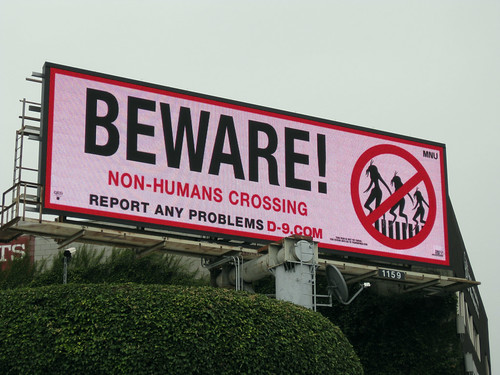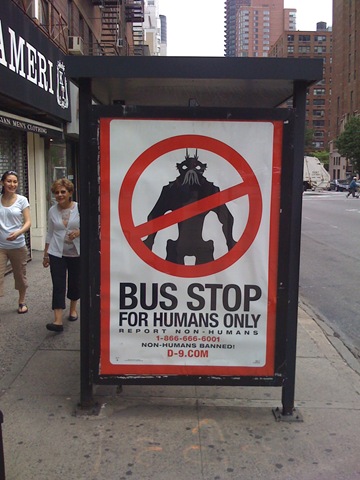There are many interesting points about District 9 to be critiqued and expanded on as it relates to race, labor, and migration, but what I found was most interesting was its viral, immersive marketing campaign, aptly named "Humans Only."
The 2010 British film "Monsters," whose plot was about giant cephalopodic aliens landing in Mexico and prompting the quarantine of the northern half of Mexico and the erection of a massive wall across the United States' southern border would utilize a similar "world building" ad campaign focusing on the restriction of the "quarantine zone" of Northern Mexico.
Both films feature human panic, prejudice, and overreaction in the face of the arrival of an "other," and both ad campaigns utilize the idea of the restriction and illegalization of spaces as adaptive to the presence of the "other." Why is this?
Restriction of space and forced relocation has long been a means of controlling and criminalizing the very presence of individuals deemed 'undesirable.' When one cannot outright name an individual as 'illegal' because that individual is a vital part of a complex system to exploit them, one restricts the spaces where that individual is able to go in order to maintain that the individual remains in their place of exploitation and marginalization.





No comments:
Post a Comment